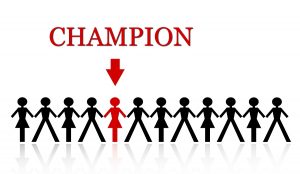
How to Develop Humble Leaders
I’ve been writing about our need for humble leaders. Humility in leadership is vital for sustainable success—for the leader, the organization and our entire society.

I’ve been writing about our need for humble leaders. Humility in leadership is vital for sustainable success—for the leader, the organization and our entire society.

Some leaders believe authority, power and even intimidation are best to run organizations and achieve results. I believe this is a detriment, not an advantage.

If you’re like some of the clients I work with, you grew up with several false ideas about what it takes to succeed as a

It’s well known from studies on employee engagement that employees are seeking more than a paycheck: they desire purpose, significance and the fulfillment associated with

In the face of today’s challenges, smart leaders can attest to what Marshall Goldsmith famously stated in his book by the same name, “What got

If you fail to reverse lack of trust in team members, dysfunctions will intensify. Team members lose their sense of purpose. If there’s little buy-in, there’s no

As a leader, how comfortable are you with conflict and disagreement? Do you thrive, survive, or dive under-cover? For consensus-driven leaders, learning to accept, be

Understanding consensus-driven thinking can help us work more effectively with this leadership style. For leaders who overvalue consensus and unity, conflict is the primary source

Do you recognize consensus-driven thinking? Leaders who struggle to make decisions, especially on issues where the team’s view is split, are likely consensus-driven. Their tentativeness

Most people will say they prefer to work for a consensus-driven leader, where inclusion and feedback are used to manage democratically. Who wouldn’t? It may

Join Nancy as she talks with Meredith Hirsh, her client, on her podcast, Working Healthcare. Learn when to seek a therapist versus a coach and

Listening may be the most difficult skill to master when communicating effectively. But master it, we can! The non-verbal part of communicating is the most

How do you test your leadership insights? “Innovation is seeing what everybody has seen and thinking what nobody has thought.” ~ Dr. Albert, Szent-

An organization’s health is only as sound as its leader’s decisions. Some companies prosper from wise leadership directions, while others struggle after flawed choices—choices that







